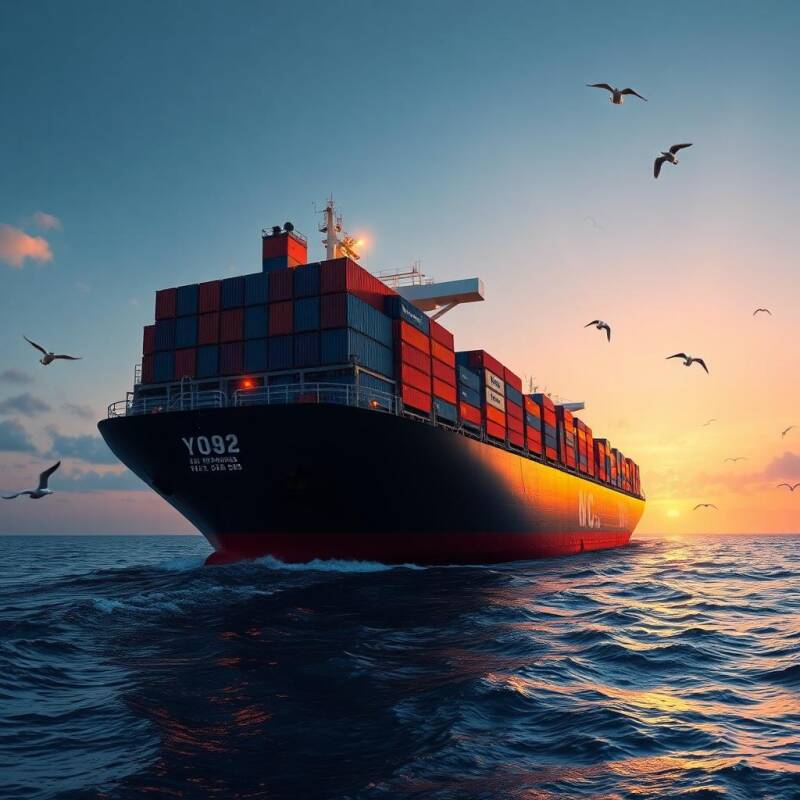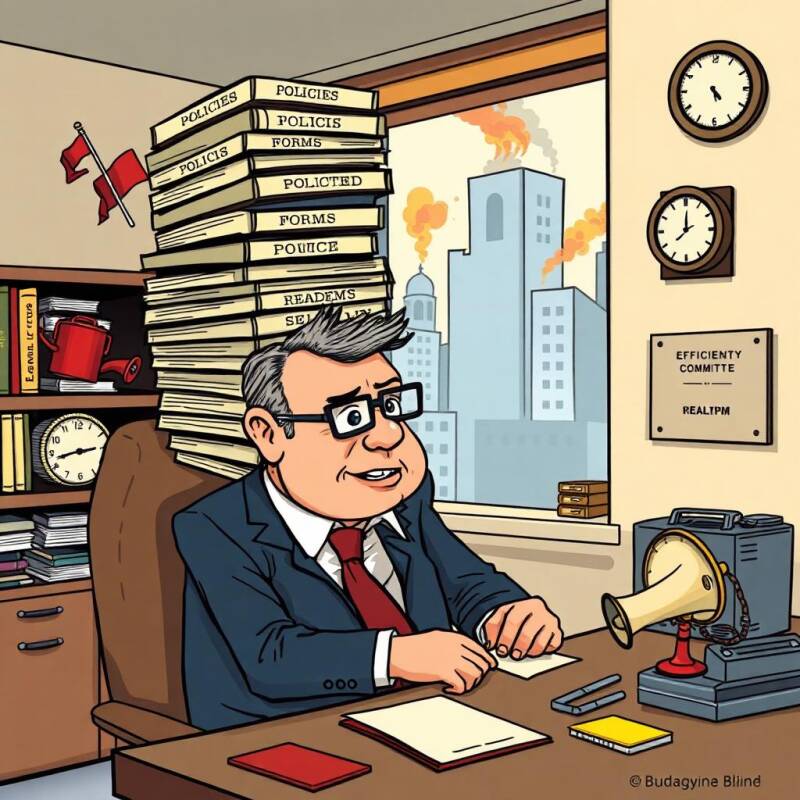
Thoughts - Not Written In Stone
September-13 -2025
Absolutism—when a single ruler (like a king, emperor, or dictator) holds unchecked power—comes with several dangers, both for individuals and societies. Here are the key risks:
1. Suppression of Rights and Freedoms
-
Citizens often lose freedoms of speech, religion, press, and assembly.
-
Dissent is treated as disloyalty, leading to censorship, imprisonment, or even execution.
2. Abuse of Power
-
Without checks and balances, leaders can act in their own interest rather than the people’s.
-
Corruption and favoritism often flourish under absolute regimes.
3. Lack of Accountability
-
Rulers are not answerable to laws or representative institutions.
-
Mistakes (wars, economic blunders, unjust policies) can devastate society without any way to correct course.
4. Economic Exploitation
-
Heavy taxation, forced labor, or seizure of property can be imposed to fund the ruler’s ambitions (wars, palaces, luxuries).
-
Ordinary citizens may face poverty while elites thrive.
5. Suppression of Innovation and Progress
-
Free thought and debate are discouraged.
-
Scientific, artistic, and social progress may stagnate if they threaten the ruler’s authority.
6. Political Instability
-
Absolutist regimes often collapse violently because power transitions (like succession disputes) turn into wars or revolutions.
-
Repression builds resentment, which can erupt into rebellion.
7. Cult of Personality & Propaganda
-
Absolutist rulers frequently use propaganda to glorify themselves and rewrite history.
-
This can distort truth, weaken education, and create generations loyal to an illusion.
8. Human Rights Violations
-
Arbitrary arrests, torture, and executions become tools to maintain control.
-
Whole groups (ethnic, religious, political) may be persecuted.
👉 Historical examples:
-
Louis XIV of France centralized power, leading to immense cultural achievements but also crushing debt that helped spark the French Revolution.
-
Tsarist Russia maintained autocracy until revolution erupted in 1917.
-
20th-century dictatorships (e.g., Hitler, Stalin, Mussolini) showed how absolute power can lead to mass violence and genocide.
9-16-2025
Self‑censorship — deliberately withholding or softening your thoughts, feelings, or information because of fear of consequences — has costs at individual, social, and institutional levels. Key dangers:
- Psychological harm: chronic suppression raises stress, anxiety, depression, resentment, and can erode self‑esteem and identity authenticity.
- Stifled creativity and growth: hiding unconventional ideas prevents experimentation, learning, and innovation.
- Poor decision‑making and groupthink: when dissent is muted, organizations and teams miss critical feedback and blind spots, increasing risk of mistakes.
- Erosion of trust and relationships: lack of candor makes relationships superficial; when withheld views surface later, trust can break down.
- Weakening public discourse and accountability: widespread silence narrows debate, allows bad policies or abuses to go unchecked, and undermines democratic processes.
- Entrenchment of harmful norms and misinformation: silence lets bias, discrimination, and falsehoods persist unchallenged.
- Institutional stagnation and reduced performance: workplaces that tolerate self‑censorship lose engagement, productivity, and talent retention.
- Increased likelihood of hidden problems and crises: problems suppressed internally often worsen and become costly to fix later.
- Growth of informal, risky channels: when official channels are unsafe, people use rumors, gossip, or anonymous outlets that can spread misinformation or cause harm.
- Potential for coercion and abuse: in environments where speaking up is dangerous, power imbalances deepen and abuses are more likely to continue.
Signs someone or a group is self‑censoring
- Repeated hedging, vague language, or avoiding key topics.
- Few or no dissenting views in meetings.
- People asking permission or apologizing before speaking.
- Important issues left unreported or discussed only privately.
How to reduce harmful self‑censorship
- Build psychological safety: leaders should invite dissent, model vulnerability, and respond constructively to criticism.
- Start small: practice honest but low‑risk statements with trusted people to build confidence.
- Use structured feedback channels: anonymous surveys, suggestion boxes, or third‑party mediators.
- Teach communication skills: framing criticism constructively, using data, and focusing on issues rather than people.
- Clarify norms and protections: explicit anti‑retaliation policies, NDAs where appropriate, and safe reporting procedures.
- Distinguish real risks from perceived ones: assess legal/safety concerns realistically and plan discreetly when needed.

9-17-2025
Tariffs
Tariffs affect self‑sufficiency in several direct and indirect ways. Key impacts:
- Make imports more expensive, encouraging domestic production: higher import prices raise demand for local substitutes, pushing firms and consumers toward domestic goods and increasing short‑run self‑reliance.
- Raise domestic prices and reduce consumer welfare: consumers pay more and face less variety, which can reduce living standards even as domestic output rises.
- Protect inefficient industries: tariffs can shelter noncompetitive firms from foreign competition, leading to misallocation of resources and higher long‑term costs for self‑sufficiency.
- Distort resource allocation: sectors receiving protection expand even if they lack comparative advantage, diverting capital and labor from more productive uses.
- Spur import substitution and capacity building (sometimes): tariffs can give infant industries time to scale, develop skills, and invest in capacity — but success depends on complementary policies (R&D, training, competition) and time limits.
- Invite retaliation and reduce trade volumes: trading partners may impose counter‑tariffs, harming export sectors and limiting access to intermediate inputs needed for domestic production.
- Disrupt global supply chains and increase costs for manufacturers: many firms rely on imported inputs; tariffs raise production costs and can undermine efforts to build integrated domestic self‑sufficiency.
- Create short‑term employment gains but uncertain long‑term jobs: protected industries may hire more workers initially, but inefficiency and higher consumer costs can suppress broader employment growth.
- Encourage vertical integration or relocation of production: firms may onshore production to avoid tariffs, which can boost domestic capacity but often increases costs and requires investment.
- Generate government revenue but also administrative burden: tariffs raise revenue that can fund industrial policy, yet collection and enforcement add bureaucracy and opportunities for corruption.
- Increase incentives for smuggling and black markets: high tariffs can make illegal imports profitable, undermining formal self‑sufficiency efforts.
Bottom line: tariffs can promote aspects of self‑sufficiency in the short run by making imports costlier and protecting domestic producers, but they often raise prices, reduce efficiency, risk retaliation, and require complementary policies to yield sustainable, productive self‑reliance.

9-19-2025
Faulure To Learn From History
"Failure to learn from history" usually refers to repeating past mistakes because individuals, institutions, or societies ignore historical lessons. Key causes and consequences:
Causes
- Historical amnesia: poor education, selective memory, or erasure of inconvenient facts.
- Overconfidence and hubris: belief current context is uniquely different.
- Cognitive biases: confirmation bias, normalcy bias, presentism, hindsight bias.
- Political incentives: leaders suppress lessons that threaten power or legitimacy.
- Cultural myths and nationalism: heroic narratives that omit failures.
- Institutional memory loss: turnover, lack of documentation, or destroyed archives.
- Complexity and misattribution: multiple causes make clear lessons hard to extract.
- Short attention spans and news cycles: focus on immediate issues over long-term patterns.
Consequences
- Repetition of catastrophic mistakes: wars, economic crashes, public‑health errors.
- Policy cycles and boom–bust patterns: failure to regulate after crises.
- Erosion of trust in institutions when failures recur.
- Opportunity costs: missed chances to build resilience and better systems.
- Social and moral harm: perpetuation of injustices and unresolved grievances.
How to reduce it
- Teach rigorous, critical history and comparative case studies.
- Institutionalize lessons: after‑action reviews, memorials, archives, and legal safeguards.
- Encourage pluralistic narratives and dissenting perspectives.
- Use data and historical analogues carefully—identify differences as well as similarities.
- Strengthen civic education and media literacy.
- Build institutional memory: documentation, standard operating procedures, and succession planning.
- Independent oversight and watchdogs to hold leaders accountable.

9-20-2025
Rejuvenation
Rejuvenation of mind, body, and soul — practical habits and approaches to restore energy, clarity, and meaning.
Mind
- Prioritize sleep: consistent schedule, 7–9 hours, wind‑down routine (no screens 30–60 min before bed).
- Practice focused rest: daily short breaks, 20‑minute power nap if needed, and weekly digital‑detox hours.
- Train attention: mindfulness or meditation (start 5–10 min/day), single‑tasking, and reducing multitasking.
- Feed curiosity: read, learn a new skill, solve puzzles, or take short courses to stimulate neural growth.
- Manage stress: cognitive techniques (label emotions, reframe thoughts), set boundaries, and schedule "worry time" to limit rumination.
Body
- Move regularly: aim for 150 min/week moderate activity (brisk walking, cycling) + 2 strength sessions. Even short 10–15 min sessions help.
- Prioritize nutrition: whole foods, regular meals, adequate protein, fruits/veggies, moderate healthy fats; reduce ultra‑processed foods and excess sugar.
- Hydration: drink water consistently; notice thirst, keep a bottle nearby.
- Sleep hygiene: same bedtime/wake time, cool/dark room, limit late caffeine/alcohol.
- Recovery practices: stretching, mobility work, foam rolling, and scheduled rest days.
- Preventive care: routine medical and dental checkups; address deficiencies (vitamin D, iron) if present.
Soul (meaning, values, connection)
- Clarify values: write 3 core values and align small daily actions to them.
- Cultivate relationships: prioritize regular, meaningful contact with friends/family; practice active listening and vulnerability.
- Purposeful practice: engage in activities that give meaning — volunteer, creative projects, mentoring, or faith/spiritual practices if relevant.
- Gratitude and reflection: daily or weekly journaling—list 3 things you’re grateful for and 1 small win.
- Nature and ritual: regular time outdoors, simple rituals (morning tea, evening reflection) to anchor the day.
Daily mini‑routine (15–30 minutes) to boost all three
- Morning (10–15 min): brief stretch/yoga + 5 min gratitude or intention setting.
- Midday (5–10 min): short walk, deep breathing, and a mindful snack.
- Evening (10–15 min): tech curfew, brief journaling (one insight, one win), and relaxation (reading, warm bath).
Weekly practices
- One longer nature outing or social activity.
- One purposeful learning/creative session (2+ hours).
- One full rest day or low‑effort day to recharge.
Longer‑term steps
- Build routines, not perfection: focus on consistency (small habits compound).
- Seek therapy or coaching if stuck—professional support accelerates change.
- Periodically audit life areas (work, relationships, health, growth) and set one focused goal per quarter.

9-22-2025
Creating your own happiness combines mindset, habits, and environment. Practical, actionable steps:
1. Clarify what matters
- Identify 3 core values (e.g., connection, growth, autonomy).
- Choose small goals that align with those values.
2. Build daily habits
- Morning ritual: 5–15 min of movement, intention setting, or gratitude.
- Do one meaningful task each day (progress beats perfection).
- Sleep, nutrition, movement: prioritize consistent sleep, regular meals, and short daily exercise.
3. Manage attention and mindset
- Practice gratitude: note 3 things daily you appreciate.
- Reframe setbacks as learning opportunities.
- Limit rumination with a scheduled "worry time" (10–15 min).
4. Strengthen relationships
- Invest time in 1–2 close relationships weekly (calls, shared activities).
- Practice active listening and vulnerability.
5. Increase meaningful engagement
- Do work or hobbies that use your strengths; aim for flow (clear goals, challenge ≈ skill).
- Volunteer or help others—giving boosts wellbeing.
6. Small wins and structure
- Break goals into tiny, achievable steps; track progress and celebrate wins.
- Use routines to reduce decision fatigue.
7. Care for your inner life
- Regular reflection/journaling (5–10 min) to process emotions and notice growth.
- Try brief mindfulness or breathwork (5–10 min/day).
8. Optimize your environment
- Declutter key spaces, add meaningful objects (photos, plants), and create a spot for relaxation.
- Reduce exposure to toxic people and draining media.
9. Learn and adapt
- Experiment with habits for 4–6 weeks, keep what works, drop what doesn't.
- Seek feedback and occasional professional help when needed (therapy or coaching).
10. Be patient and compassionate
- Happiness builds over time; allow setbacks without self‑judgment and prioritize consistency over intensity.

9-25-2025
Stoicism is an ancient Hellenistic school of philosophy (founded in Athens c. 300 BCE by Zeno of Citium) focused on how to live a good, flourishing life by cultivating virtue, rationality, and inner resilience. Core ideas and practical features:
- Primary aim: eudaimonia — a flourishing life achieved through virtue (moral excellence), not by pursuing pleasure or avoiding pain.
- Four cardinal virtues: wisdom (practical judgment), courage, justice, and temperance (self‑control).
- Control distinction: focus your attention and effort on what you can control (your judgments, choices, actions) and accept what you cannot (other people’s actions, external events).
- Rational mastery of emotions: cultivate tranquility by judging impressions objectively; emotions arise from beliefs, so change unhelpful beliefs to reduce destructive passions (not by suppressing feelings but by reframing them).
- Practice of negative visualization: imagine loss or hardship to reduce fear, increase gratitude, and prepare for setbacks.
- Amor fati (acceptance): embrace events as necessary parts of the cosmos; accept fate while acting virtuously.
- Premeditation of adversity and voluntary discomfort: train resilience through small, controlled hardships (fasting, cold exposure, brief voluntary inconvenience).
- Universal brotherhood and duty: view yourself as part of a rational community; act justly toward others and fulfill social duties.
- Practical exercises: journaling (morning planning, evening reflection), cognitive reframing, setting intentions, reflecting on death (memento mori), and using maxims to guide action.
Why people practice it today
- Offers practical tools for emotional regulation, clarity in decision‑making, and steadiness under stress.
- Compatible with modern psychotherapy (CBT shares common techniques).
- Emphasizes action and responsibility rather than passive acceptance.
Notable Stoics
- Early: Zeno of Citium, Cleanthes, Chrysippus.
- Roman Stoics: Seneca (letters and essays), Epictetus (discourses, Enchiridion), Marcus Aurelius (Meditations).
